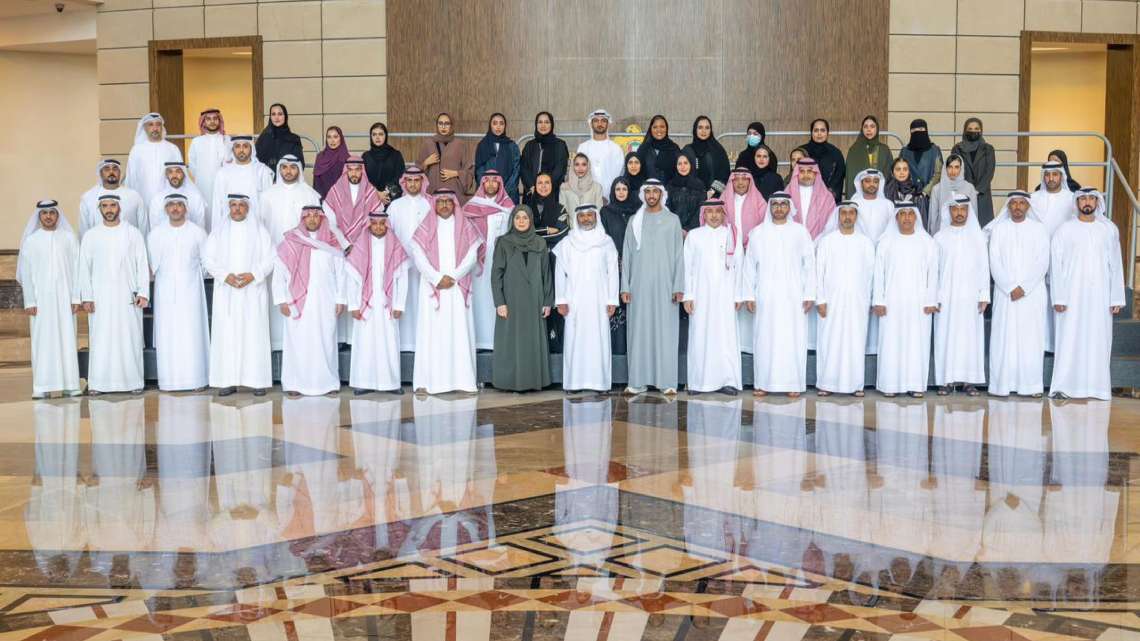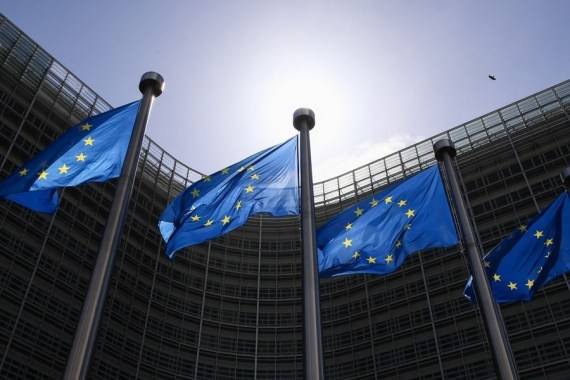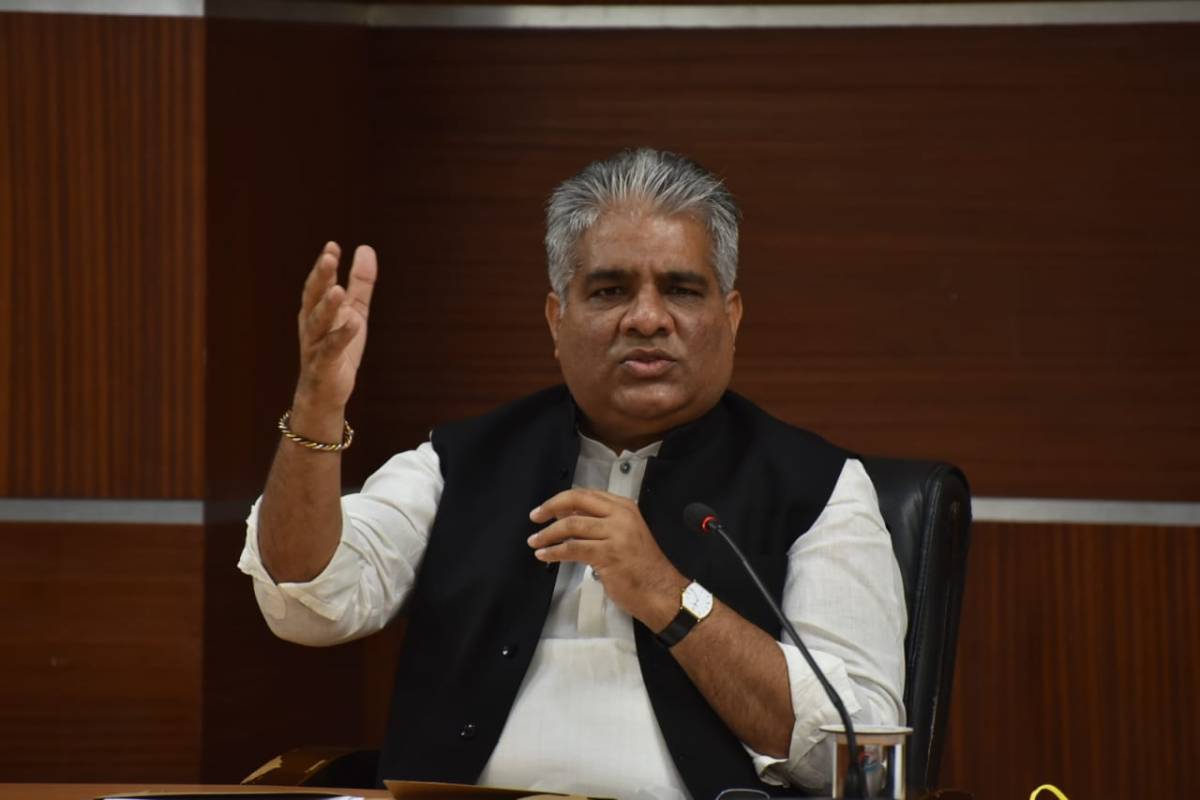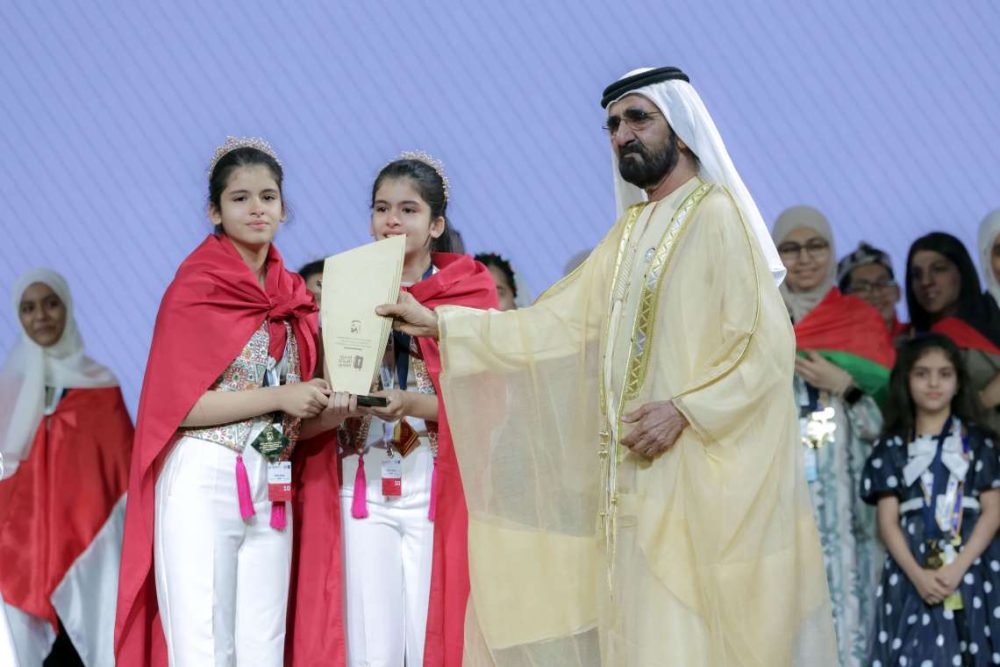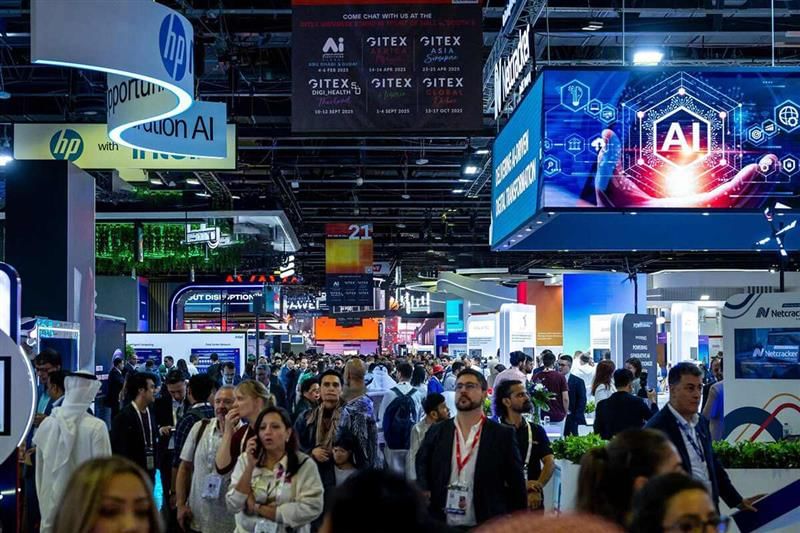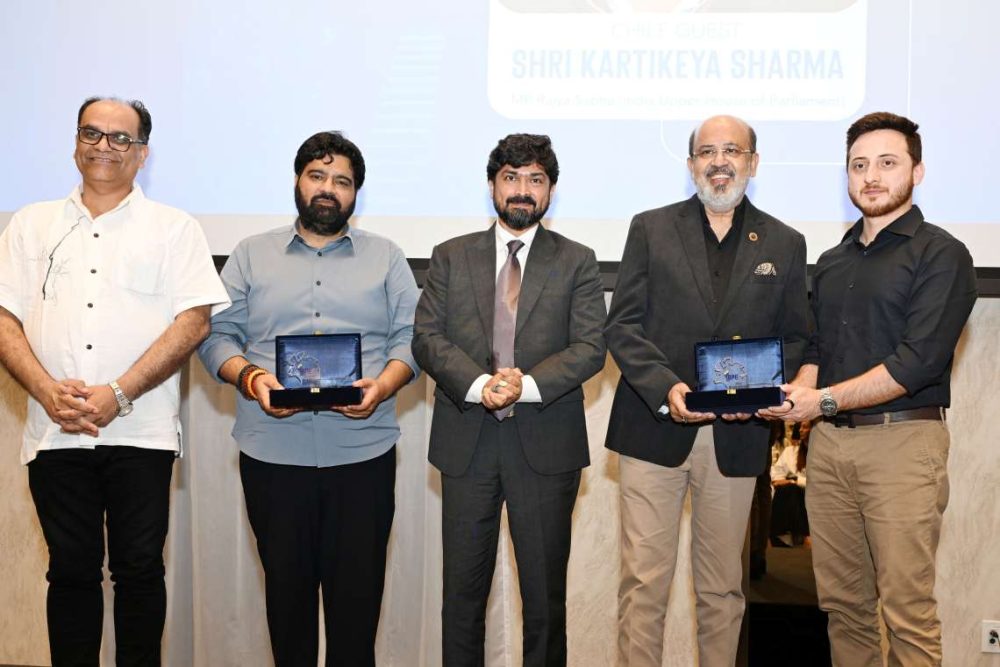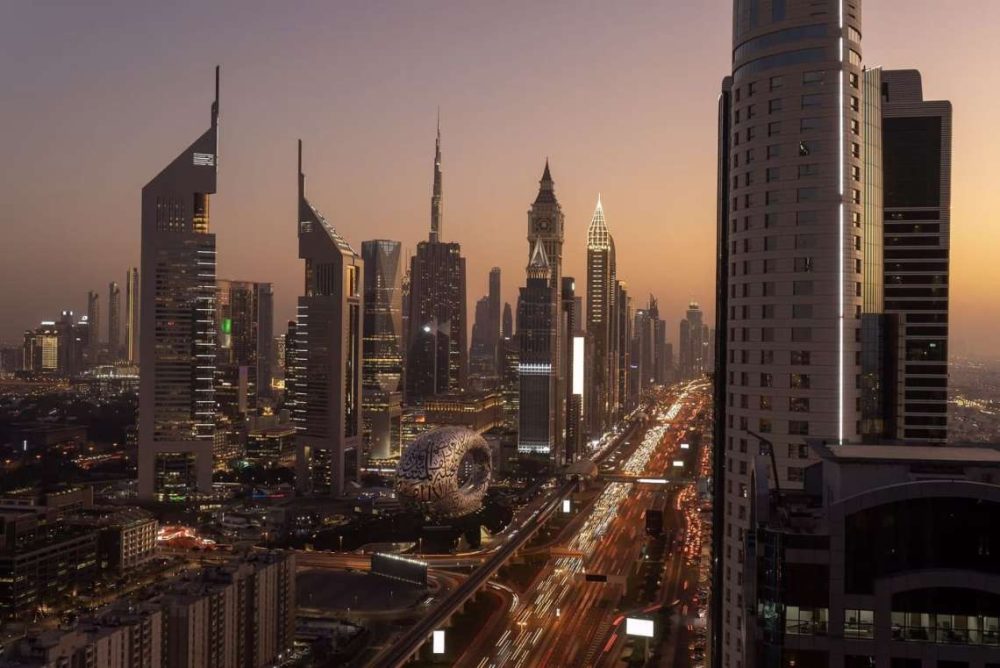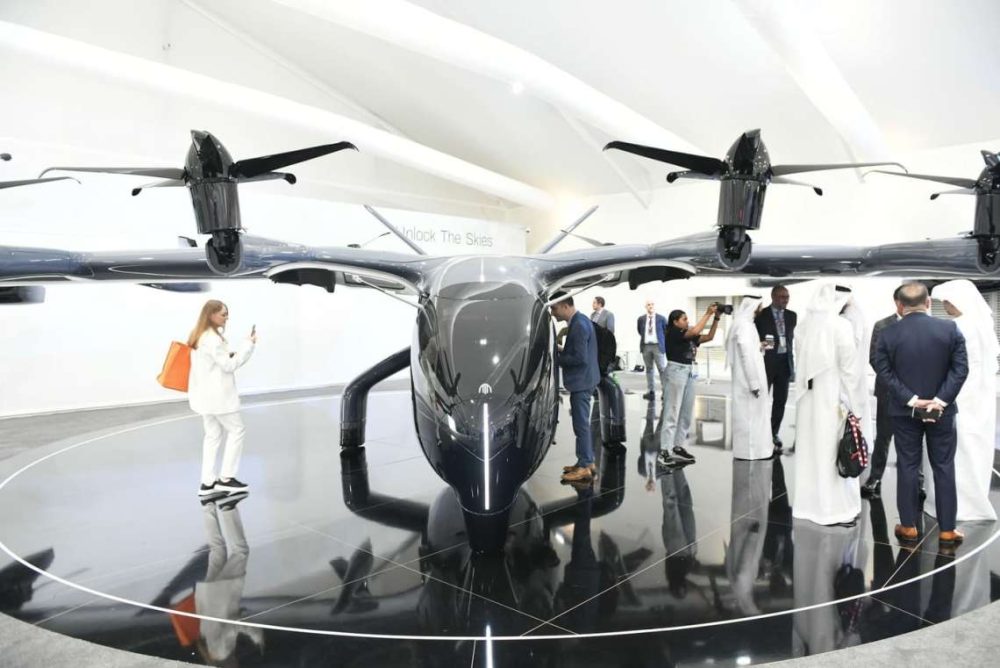The future of travel has all the sci-fi touches which not too long ago were confined to movie CGI studios and fictional novels. No longer…reports Asian Lite News
The future of travel is taking shape now and will come into clear focus in Dubai next month (November) at the breakthrough Hypermotion Lab.
This three-day conference, one of a trio scheduled for the transformational Hypermotion Dubai event running at Dubai Exhibition Centre at Expo Dubai from 2nd to 4th November, 2021, is drawing together the global disruptors who are re-envisioning how we will travel and move goods and services in the very, very near future.

The multi-national speaker platform comprises life-changing transport gurus whose combined imagination will take us to new ways of going places. They are tearing down boundaries between logistics, mobility, infrastructure, and transport, and looking to replace them with networked, integrated, and inter-modal systems.
Take Prof. Carlo Ratti, Director, Senseable City Lab at Massachusetts Institute of Technology, who is planning to introduce us to the “Fifteen-Minute City” where traffic jams, polluted air and long commutes will become things of a not-so-distant past. In essence, this is a new urban planning model which divides cities into “isochronal” neighbourhoods that can be easily explored on foot within 15 minutes.
“Each of these neighbourhoods is equipped with all the facilities needed in everyday life, and can effectively reduce commuting time, traffic congestion as well as pollution. The audience will have an opportunity to discover some of the best urban planning practices to implement this concept, from Paris, to Portland, to the Milan Innovation District,” Prof. Ratti contended.
The neighbourhoods will focus on micro-mobility, which has shot up planning agendas in the wake of the COVID-19 pandemic when the need to travel safely avoiding health risks was top of collective minds. “Devices such as e-scooters and bikes help us travel without being in close contact with strangers and are more sustainable than private cars. Gloves and disinfectants are also useful in giving us additional protection,” Prof. Ratti explained.
Coupled with new safety needs are new demands for people to get around easier. “Recently, various cities have sought solutions through mixed-use neighbourhoods. Each of these neighbourhoods is fully equipped with residential units, offices, shops, and other amenities so that citizens can avoid commuting long-distance.”
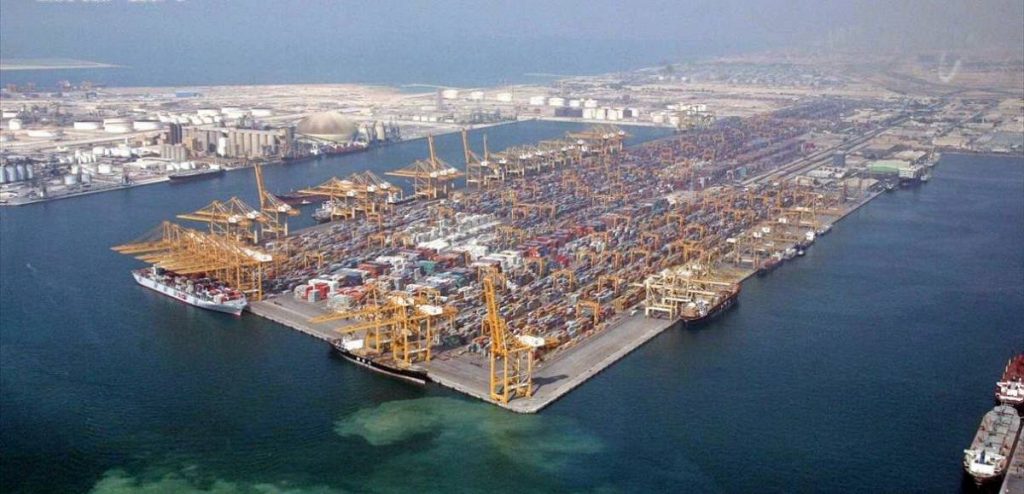
And when it comes to logistics, Prof. Ratti believed big data will come to the rescue. “I will address the difficulties faced by informal settlements like Brazil’s favelas. Without proper addresses, even Amazon cannot make deliveries there nowadays. MIT Senseable City Lab Work has conducted work to scan Rocinha, one of the country’s biggest favelas, which collects enough data points to establish a framework to assign property titles to residents, with the goal to make their lives more convenient.”
And making life more convenient will be the focus of Josh Giegel, CEO & Co-Founder of Virgin Hyperloop, the American transportation tech company looking to commercialise high-speed vacuum train technology when he takes to the Hypermotion Lab platform. He will be giving delegates an insight into what it is like to ride in a hyperloop and address its benefits for transporting cargo and passengers.
ALSO READ: ‘UAE Industry 4.0’ to place UAE at centre of global transformation
“I hope the audience gains an understanding of how hyperloop will forever change the way we think of distance and time,” he said.
Giegel adds the all-electric hyperloop with zero direct emissions will address three key challenges of transport today – sustainability, cost, and speed.
“Virgin Hyperloop will be significantly more cost-efficient than other modes of mass mobility,” he said. “The key to these cost savings is building a new mode from the ground up and optimising for the real world at an advantage to rail. Hyperloop can address scenarios such as tunnelling under a busy street, taking a tight turn to remain within an existing right of way, or serving demand with pods scheduled in real-time all in a more cost-effective way. There is no one-size-fits-all, and previous technologies have not been able to adapt well to these scenarios – leading to massively underserved markets.”
And if you think life is fast-paced now, hyperloop plans to change the face of delivery forever.
“Hyperloop can deliver cargo at the speed of flight and closer to the cost of trucking,” Giegel stated. “Today, on-demand deliveries are novel. Tomorrow, they will be the expectation. The need for faster trade continues to grow and existing systems are outdated. With hyperloop, transport can take hours versus days. We have the opportunity to expand the capacity for high-priority, on-demand goods typically served by air fresh food, medical supplies, electronics, and more. We could also expand freight transportation capacity, connecting with existing modes of road, rail, ports, and air transport.”
In all 27 mobility pioneers from all corners of the globe will share their transformative ideas on the impact of big data, urban air mobility, alternative fuels and the latest on the GCC rail network. Hypermotion Lab, says event organisers Messe Frankfurt, is “a unique platform for disruptors and disruption.”
“It is a stage for founders and true innovators, where insights into the future move firmly into the spotlight, where what is old is re-thought and what is new is put to the test through a specifically curated programme of future-orientated pioneering projects and solutions, all connected by infrastructure and technology,” commented Simon Mellor, CEO of Messe Frankfurt Middle East.
And in gathering to Hypermotion Lab, the disruptors believe they have come to exactly the right place to test and breathe life into their concepts.
PROF. RATTI: “I have been impressed with how much various Middle Eastern cities are willing to engage in mobility-related experiments. Urban innovations often begin with a fair number of trials and errors. The more ideas are tested, the more likely we can materialise initiatives that bring forth real changes. As one of the regional leaders, Dubai is ahead of the rest of the world in adopting certain ground-breaking mobility technologies.”
For Giegel, the entire GCC holds enormous potential to lead the world in hyperloop manufacturing, investment, and job creation. “It is not burdened with centuries-old systems and so can take a giant leap forward. Hyperloop will unlock enormous economic, social, and human potential by fundamentally altering barriers of distance and time.”
Smart cities – which need smart mobility – have been gaining attention throughout the region over the past few years – and the smart money, it seems, should be on the reimaginings the Hypermotion Lab disruptors are bringing to pass.





